TBI Blogs: This Woman Rallied Tribal Communities to Play a Crucial Role in the Broom Revolution of Odisha
Vidhya Das is the founder of Agragamee, and the popular tribal women's collective, AmaSangathan. Her untiring efforts in the field of tribal development have led to a sea-change in the socio-economic conditions of countless tribals in Odisha.

Vidhya Das is the founder of Agragamee, and the popular tribal women’s collective, AmaSangathan. Her untiring efforts in the field of tribal development have led to a sea-change in the socio-economic conditions of countless tribals in Odisha.
Winds of change are blowing through the bustling green towns and villages of rural Odisha. Women are stepping out of the confines of their home to take on leadership roles and guide their communities into the 21st century. Young girls are finally getting their due with access to quality education. And tribal families across the state are finding new employment and livelihood opportunities that are helping them work their way out of abject poverty. As these individuals take their first steps towards a better tomorrow, they have Vidhya Das to thank for ushering in life-transforming change in their lives.
In 1987, Vidhya Das, along with her husband, Achyut Das, founded the group Agragamee. The collective witnesses the coming together of activists and thinkers who are driven by the goal of ensuring tribal development throughout the country, with a special focus on the eastern state of Odisha.
The group employs a holistic approach to solve the many problems that plague the tribal communities in the state, including education, employment, women empowerment, land rights, etc.
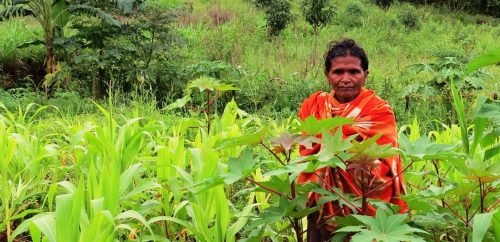
The group, whose name means ‘pioneers,’ focussed their early efforts on ending the system of bonded labour that was rampant in the region. Tribal communities and other vulnerable sections of society often fall prey to the inhumane system when, unable to repay their crippling loans, they are forced instead, to commit to a life of labour.
It was by no means an easy fight, and the group, led by Das, often had to face violent backlash from vested interests. Yet, they persevered and remained undaunted in their efforts to ensure the betterment of the residents of the region.
In the 1990s, the group expanded its area of work to include the empowerment of tribal women, and ‘AmaSangathan,’ a local federation of women’s self-help groups, was formed. The federation, whose name translates to ‘Our Gathering,’ encourages women to rally together to fight for their rights and work towards their economic independence. Today, it is dubbed one of the most successful tribal women’s organization in Odisha.
The AmaSangathan, under the leadership of Das, played a crucial role in the ‘Broom Revolution,’ which led to the empowerment of countless tribal women.
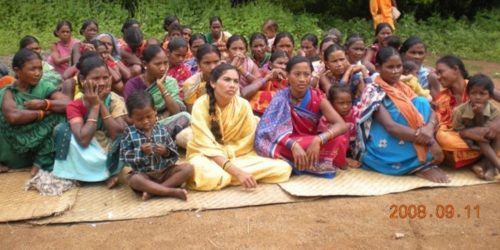
The revolution can be traced back to the tribal practice of collecting minor forest produce like firewood, fruits, medicinal plants and berries. The tribal communities were forced to sell this produce to a public-sector organisation, at rates that were determined by the government. While the organisation paid the tribal men and women a pittance, they sold the produce at a great margin to private companies, who profited handsomely from the manufacture and sale of brooms.
Outraged by this exploitation, Das and AmaSangathan launched a massive protest that lasted seven years. The result of the ‘Mandibisi Struggle,’ as it is also known, was an amendment to the law in 2000, giving tribals the right to sell minor forest produce themselves.
This led to AmaSangathan entering the business of brooms, a move that helped them eliminate exploitation and keep a check on the monopoly of petty traders. Today, the group’s brooms are popular across the state and have spelt economic empowerment for the group’s 1,300 members.
Das’ other efforts to ensure the socio-economic progress of tribals includes providing employment to more than 150 tribal women through AmaSangathan. The group has also helped women learn technology for value addition and food processing. Today, the members are involved in supplying pulses for the mid-day meal programme of the government in Kashipur Block of Odisha.
Das and the group’s efforts also complemented the government’s own initiatives to encourage participation of women in local governance efforts. AmaSangathan actively encouraged its members to stand for village-level elections. Emboldened by their success in the self-help groups, many women came forward to take on the role of leaders and decision makers, a truly path-breaking and empowering moment for those who were previously relegated to the role of spectator in the matters of local governance.
These efforts to increase women’s participation in local governance improved the functioning of 100 grampanchayats in some of the most underdeveloped districts of Odisha. Having women in positions of power also translated into the planning and implementation of women-centric programmes in these districts.
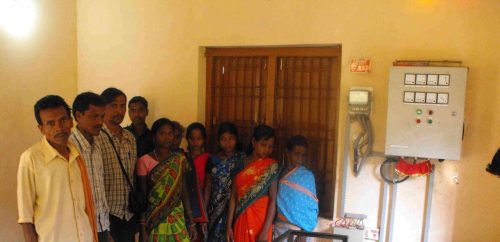
Today, thanks to encouragement from Vidhya Das and AmaSangathan, tribal women have even risen to positions of power in State and District Level Advisory Bodies, including the Joint Forest Management Committee and the Tribal Advisory Counsel.
Vidhya Das’ persistent and painstaking efforts have encouraged more than 8000 tribal women from 1000 villages and hamlets in Odisha, to get together and raise their voice against issues like discrimination, corruption, violation of basic human rights and poor delivery of crucial government services like education, health and employment generation.
Her efforts have also created awareness on the governmental programmes and services available to the people.
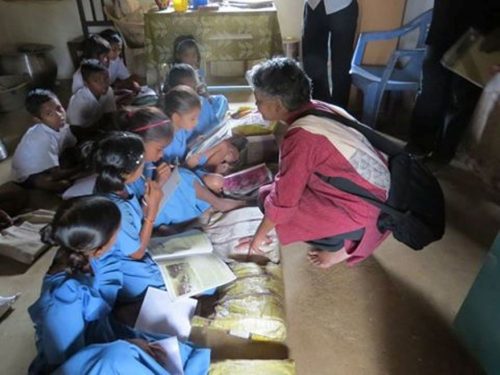
Das is also known for pioneering the anti-alcohol movement in 12 districts of the state, through AmaSangathan; the movement eventually resulted in the shutting down of liquor breweries in the area.
Under Das’ guidance, tribal women in over 150 villages stepped up to the challenge of protecting, rejuvenating and revitalising the commons. Thanks to their efforts, more than 7000 acres of upland commons in 120 villages have been reclaimed, and now provide income to the women of these villages.
At the turn of the century, the group turned its focus on agriculture and education. It has since helped tribal farmer adopt natural farming methods for cultivation. This has helped reduce soil erosion by 80 per cent and has significantly improved soil fertility.
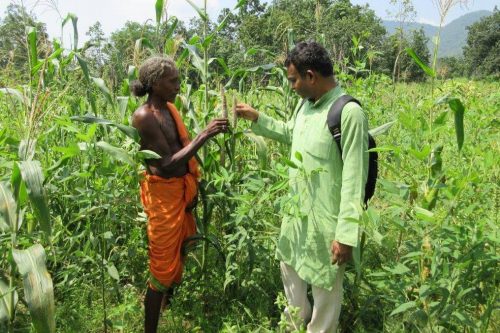
In the field of tribal education, Das has not only been able to mobilise women to ensure that girls get an opportunity to go to school but, she has also made systematic and sustained efforts to mobilise resources for educating the tribal children in 250 villages in the tribal regions of Odisha.
The models of language and methodology of teaching mathematics developed by her are being followed in different primary schools in the State.
Seven thousand tribal girls and boys now have access to primary education and higher education due to Das and her group’s efforts in implementing non-formal education.
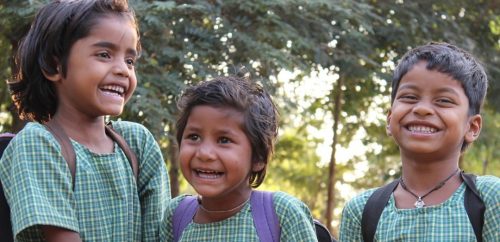
In fact, AmaSangathan’s inspiring work and success in numerous areas has made it a model for other voluntary organisations to emulate.
In addition to her inspiring work in the area of tribal development, Das is also a prolific author with numerous books to her name. She has written extensively on tribal socio-economic issues in regional and national newspapers, as well as in academic journals. Some of the books she has authored are ‘Human Rights, Inhuman Wrongs,’‘Chronicle of a Struggle,’‘Stories from Beyond’ and ‘Food Security Reports from Tribal Orissa.’
Das is also an Advisor to the Supreme Court Commission on Right to Food. Since her appointment, in 2006, she has brought to light several irregularities on the issue of right to food.
In 2000, in recognition of her praise-worthy work, Das was awarded the YWCA Role of Honour.
Das’ continues to usher in change in tribal village communities through her numerous and untiring efforts to ensure development of tribal communities.
In the year 2013, Smt. Vidhya Das was conferred the Jamnalal Bajaj Award, in the category for Development and Welfare of Women and Children.
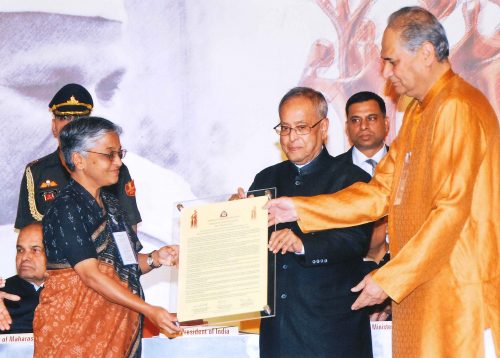
For more information on Vidhya Das, click here.
Know an inspirational changemaker working for rural development at the grassroots level? Click below to nominate them for Jamnalal Bajaj Awards 2017.
Unable to view the above button? Click here
Featured Image Source: Youtube
Like this story? Or have something to share? Write to us: [email protected], or connect with us on Facebook and Twitter.
NEW: Click here to get positive news on Whatsapp!
If you found our stories insightful, informative, or even just enjoyable, we invite you to consider making a voluntary payment to support the work we do at The Better India. Your contribution helps us continue producing quality content that educates, inspires, and drives positive change.
Choose one of the payment options below for your contribution-
By paying for the stories you value, you directly contribute to sustaining our efforts focused on making a difference in the world. Together, let’s ensure that impactful stories continue to be told and shared, enriching lives and communities alike.
Thank you for your support. Here are some frequently asked questions you might find helpful to know why you are contributing?


This story made me
- 97
- 121
- 89
- 167











